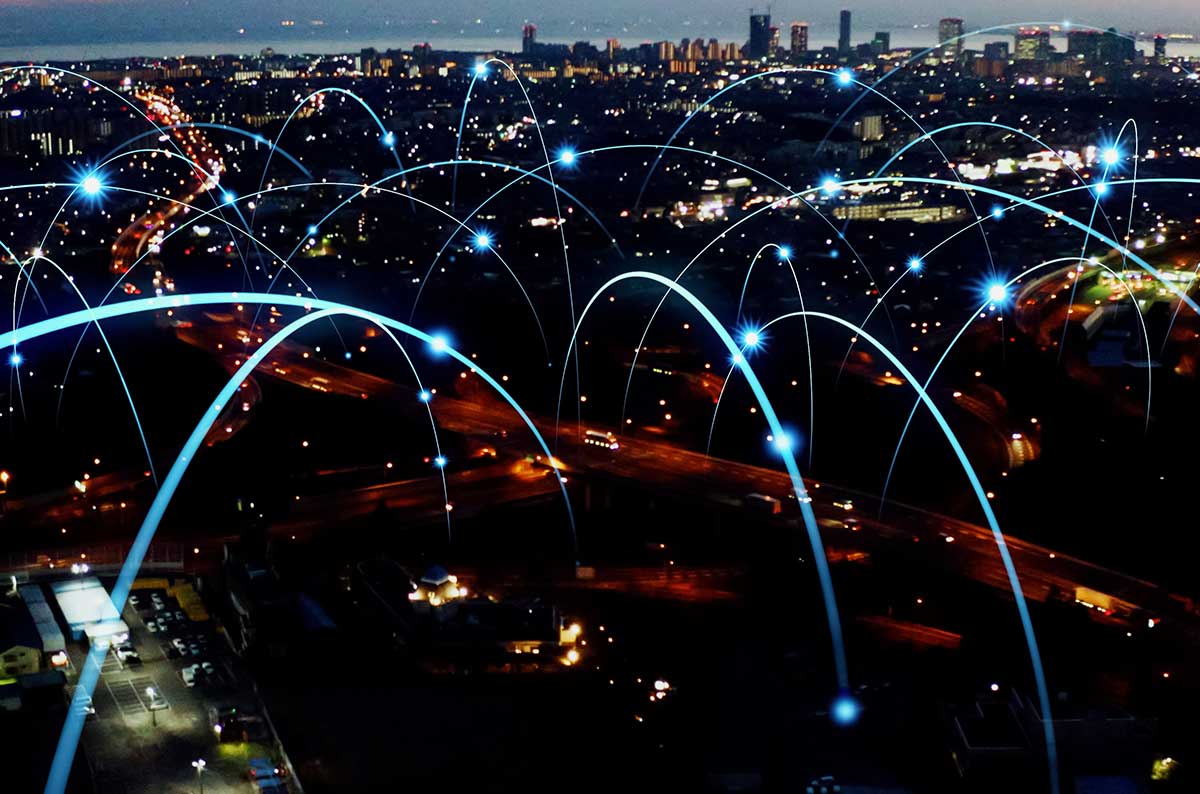
Finding and comparing internet alternatives is an exhausting research task that HomeLinkd knows you certainly don’t have time for. From fixed wireless to DSL to fiber to satellite, what does it all mean? And which one is best for you? These are the questions we’re here to answer. Learn more about internet alternatives available on HomeLinkd!
Four internet alternatives for you to choose from
Fixed wireless
A good example of fixed wireless internet is 4G or 5G. This is an internet option often used in big cities or busy suburbs, but not so much in rural areas. This is because the proximity to a cell tower is vital for the technology to work and rural areas are often far away from cell towers. 4G or 5G are known for their speed, which make them excellent choices for home offices, gaming, streaming and more.
Fiber
According to HomeLinkd, fiber is one of the best and most advanced forms of internet. It uses fiber-optic cables that are placed underground to transmit data to and from you’re home through light pulses. These fiber-optic cables are encased in glass or copper, which increases their reliability and speed.
Satellite internet
Satellite was the very first technology used to develop and send an internet connection to the home. Developed in the 1970s, satellite has been around for over 50 years; which explains why it is the most widely used form of internet in the US. Satellite is ideal for homes on farms, near mountainous or rural areas, or small towns because the technology used spans a much larger area than more modern internet connections.
DSL
DSL or a “digital subscriber line” is also one of the internet options on the more mature side of age. DSL provides your home with internet through the telephone lines. The DSL cables within the phone lines are separate, meaning you can use the internet and be on the landline phone at the same time.
Can you have cable internet without cable TV?
The quick answer –yes, you can. There are a number of cable internet providers that offer packages without cable TV:
1. CenturyLink: $50.00 per month with speeds up to 100 Mbps
2. Cox Internet Starter 25: $29.99 per month starting at 25 Mbps
3. Frontier Basic Internet: $37.99 per month with speeds up to 25 Mbps
4. AT&T: $35.00 per month with speeds up to 300 Mbps
Can you have cable internet without cable TV?
In 2022, there are over 50 streaming services available in the US alone. From Netflix to Hulu to Amazon Prime, the best in movies and series has found a new home: In the radio wavelengths transmitted from a cell tower to your smart TV. Streaming has become so dominant in the home entertainment industry that it is expected to grow to $842 billion in market share value by 2027. That’s a 21% increase from 2021!
A major perk that streaming services have on cable TV is that they are separate entities to your internet provider. You don’t have to bundle your home entertainment with an internet or phone plan. In addition, combined cable TV and internet plans are often on a long-term contract, meaning you’re tied to your cable TV even if you’ve stopped using it. Streaming services aren’t on contract, so you can cancel at any time.
Cable shouldn’t be disregarded just yet. Although streaming relies on technology that is getting bigger and faster with each passing year, cable has been a staple internet choice for a reason: It’s reliable. Cable internet works through coaxial or fibre-optic cables that are placed underground. This stops the weather from affecting your internet connection, which can happen even if it rains a little too hard.
Compare internet alternatives with HomeLinkd
The range of internet alternatives available will cover whatever your internet needs may be, from work to gaming to social media surfing. HomeLinkd has a number of fiber, cable, satellite and DSL internet plans ready for your home or office!
Compare and shop HomeLinkd’s variety of internet options online!
Finding and comparing internet alternatives is an exhausting research task that HomeLinkd knows you certainly don’t have time for. From fixed wireless to DSL to fiber to satellite, what does it all mean? And which one is best for you? These are the questions we’re here to answer. Learn more about internet alternatives available on HomeLinkd!
Four internet alternatives for you to choose from
Fixed wireless
A good example of fixed wireless internet is 4G or 5G. This is an internet option often used in big cities or busy suburbs, but not so much in rural areas. This is because the proximity to a cell tower is vital for the technology to work and rural areas are often far away from cell towers. 4G or 5G are known for their speed, which make them excellent choices for home offices, gaming, streaming and more.
Fiber
According to HomeLinkd, fiber is one of the best and most advanced forms of internet. It uses fiber-optic cables that are placed underground to transmit data to and from you’re home through light pulses. These fiber-optic cables are encased in glass or copper, which increases their reliability and speed.
Satellite internet
Satellite was the very first technology used to develop and send an internet connection to the home. Developed in the 1970s, satellite has been around for over 50 years; which explains why it is the most widely used form of internet in the US. Satellite is ideal for homes on farms, near mountainous or rural areas, or small towns because the technology used spans a much larger area than more modern internet connections.
DSL
DSL or a “digital subscriber line” is also one of the internet options on the more mature side of age. DSL provides your home with internet through the telephone lines. The DSL cables within the phone lines are separate, meaning you can use the internet and be on the landline phone at the same time.
Can you have cable internet without cable TV?
The quick answer –yes, you can. There are a number of cable internet providers that offer packages without cable TV:
1. CenturyLink: $50.00 per month with speeds up to 100 Mbps
2. Cox Internet Starter 25: $29.99 per month starting at 25 Mbps
3. Frontier Basic Internet: $37.99 per month with speeds up to 25 Mbps
4. AT&T: $35.00 per month with speeds up to 300 Mbps
Can you have cable internet without cable TV?
In 2022, there are over 50 streaming services available in the US alone. From Netflix to Hulu to Amazon Prime, the best in movies and series has found a new home: In the radio wavelengths transmitted from a cell tower to your smart TV. Streaming has become so dominant in the home entertainment industry that it is expected to grow to $842 billion in market share value by 2027. That’s a 21% increase from 2021!
A major perk that streaming services have on cable TV is that they are separate entities to your internet provider. You don’t have to bundle your home entertainment with an internet or phone plan. In addition, combined cable TV and internet plans are often on a long-term contract, meaning you’re tied to your cable TV even if you’ve stopped using it. Streaming services aren’t on contract, so you can cancel at any time.
Cable shouldn’t be disregarded just yet. Although streaming relies on technology that is getting bigger and faster with each passing year, cable has been a staple internet choice for a reason: It’s reliable. Cable internet works through coaxial or fibre-optic cables that are placed underground. This stops the weather from affecting your internet connection, which can happen even if it rains a little too hard.
Compare internet alternatives with HomeLinkd
The range of internet alternatives available will cover whatever your internet needs may be, from work to gaming to social media surfing. HomeLinkd has a number of fiber, cable, satellite and DSL internet plans ready for your home or office!
Compare and shop HomeLinkd’s variety of internet options online!











